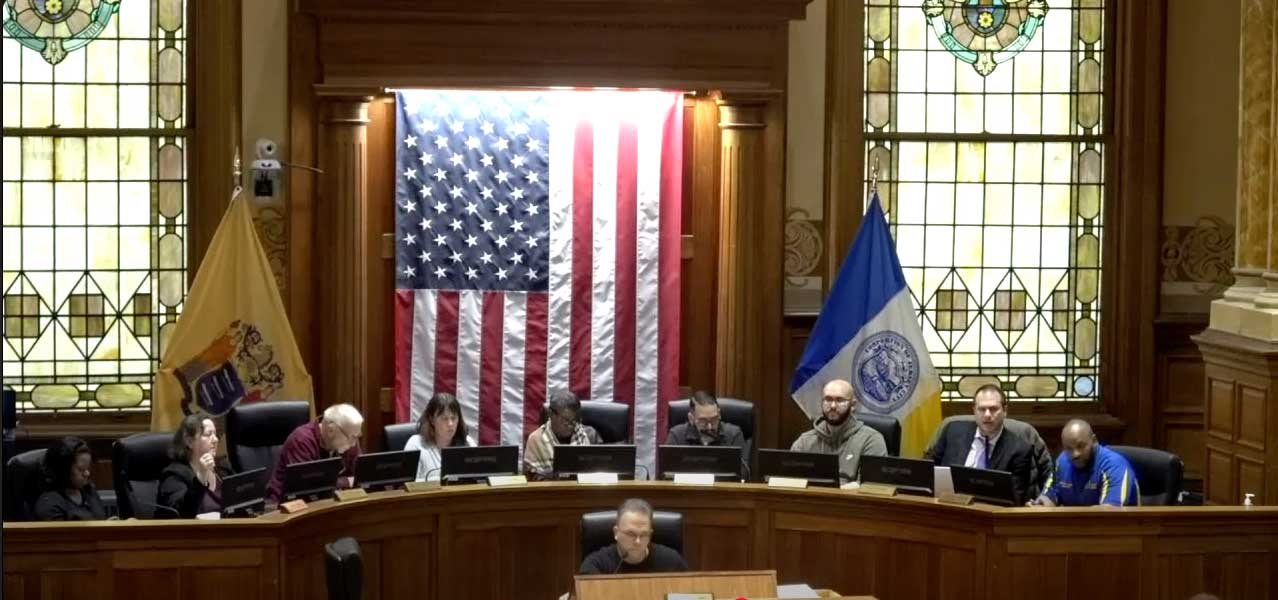Jersey City Cracks Down on Cannabis Licensing With New Caps, Criteria, and Oversight
May 8, 2025

Jersey City has modernized its municipal guidelines for cannabis businesses. The Municipal Council recently passed an ordinance revising regulations for cannabis establishments and distributors to reflect evolving licensing and operational standards.
In a Municipal Caucus meeting held on April 7, Acting Corporation Counsel Brittany Murray explained the changes to the regulations under the ordinance, as well as how the changes have evolved throughout the process. One of the big updates was the establishment of a hard limit on the number of licenses distributed by the City.
The ordinance states that there will be three licenses permitted of each of these types of licenses, including Class 1 Cannabis Cultivator licenses, Class 2 Cannabis Manufacturer licenses, Class 3 Cannabis Wholesaler licenses, and Class 4 Cannabis Distributor licenses. For Class 6 Cannabis Delivery licenses, there will be a limit of six, with one for each ward.

According to Murray, the limit for Class 5 Cannabis Retailer licenses across the City is set at 48, with 8 in each ward. A Class 5 Cannabis Retailer license can be issued in connection with an application made before the effective date of the limit, according to the ordinance.
“Some people may be grandfathered in, so we’ll go beyond that cap to start,” she added.
Murray said there were a number of larger changes to the structure of the Jersey City Cannabis Control Board (CCB) as well as the appointment of its members. Due to attendance issues, the Board was expanded to two additional member positions. “We did change, pursuant to the Council’s recommendation, since we were having quorum issues, from a five-member board to a seven-member board,” Murray added.
To address quorum challenges, the ordinance stipulates that any Board member who misses three meetings in a calendar year will be automatically removed. Additionally, the Cannabis Control Board (CCB) will adopt a regular meeting schedule, holding sessions at least once a month or more frequently as necessary to conduct business, respond to emergencies, or comply with legal deadlines.
The appointments of Board members was also changed to be from five by the Mayor and one by the Council President, the ordinance now stipulates that all appointments will be made by the Mayor with advice and consent by the Council. The terms of all Board members were also changed to three years in all cases.
At the Council’s request, Murray said the City added a residency requirement for CCB members. She said the one current Board member who is not a resident will not be removed from the Board in the wake of the change.
“If he’s already on the Board and a member, he will be able to continue with his membership through the end of his term,” Murray said. “But every new appointee will have to be a Jersey City resident going forward.”
The ordinance newly defines the specific functions of the CCB.
The Board’s recommendation regarding whether or not the Council should approve a resolution of local support will state: if the application is for an authorized class of cannabis business; if the approval would exceed any licensing limits; if the Board recommends any preference in regards to the license; and if the applicant has met the City’s local licensing requirements.
As part of this measure, the Council introduced new local licensing requirements. Under the ordinance, the Cannabis Control Board (CCB) will evaluate applications based on several criteria, including: the community impact and outreach plan, community feedback, whether the location meets an area of need, hiring practices, the applicant’s ties to Jersey City and the neighborhood served, commitment to diversity and inclusion, safety and security plans, and the proximity of the site to schools—requiring a minimum distance of 200 feet from any public or private elementary or secondary school.
The Board may also request any additional documents or information it considers relevant.
The ordinance requires that each resolution of support be renewed annually and emphasizes that no cannabis establishment may operate without it, along with all other required local and state permits and payment of applicable application and licensing fees.
When reviewing renewal applications, the Board will evaluate whether the business has received any violation notices or is involved in litigation related to violations, assess its impact on the community, and consider any other factors it finds relevant.
Another important aspect of the ordinance is that it allows for the CCB, in conjunction with the Division of Commerce, to create application windows at times when a license becomes available. She said this will also be the case for license renewal periods as well, or for the cannabis consumption areas, of which the state just opened up the process.
“We haven’t done it yet, so we’re not exactly sure how it would look, but I envision that commerce tells them ‘Hey, we have a license available, let’s put a time period on.’ We’ll put the time period on and then those applications can be considered by the Board,” Murray said.
Murray said the ordinance also lists each license’s requirements so that the CCB can do a “robust review” and give a recommendation to the Council with all information needed for the Council to vote on a resolution of support. “It means they have to go through them, they have to check them off, they have to put them in their recommendation to the Council so it’s clear what needs to be included for an application to go before the Council,” Murray said.
Another major change is the distancing rules, which still equate to a 200-foot minimum distance requirement for schools. However, the ordinance now clarifies which schools are included in that metric.
“We did change the definition… which only includes up to secondary schools,” Murray said. “We still keep the 200-foot requirement for up to secondary high schools.”
Murray noted that the ordinance removes the need for Planning Board approval before CCB and Council review. Cannabis applications will now go to the Zoning Board first, where a determination letter will confirm the proposed use and establishment type are permitted at the location.
“They can go get Zoning determination letters instead of appearing before Planning,” Murray said. “There is still a noticing requirement. Ten days before they are to be heard before the Cannabis Control Board, they have to notify everybody as they would with the Planning Board… everybody within 200 feet.”
Murray concluded that those are the most major changes: “The Board is meant to be there to review all the applications and to make sure they get to the Council. But the Council’s resolution of support is what allows them to forward in the process.”
Among the minor changes, the ordinance now includes a clearer definition of a cannabis retailer, specifies that the legal age for cannabis consumption is 21, and allows the use of vehicles for delivery. She added that the ordinance also eliminates the need for a second appearance before the CCB, so applicants will only need to appear once before the Board before moving on to the Council to seek a resolution of support.
In response to Council questions about operations and subsequent concerns, Murray clarified that she will be helped by Division Commerce and Director Maynard Woodson. She said the Board will deal with applications and things of that nature while operations are under Woodson’s discretion.
According to Murray, an ordinance will come before the Council in the future that will establish a social equity committee to spend cannabis tax revenue. She said the committee would, once operational, provide recommendations to the Council that it would then adopt in the municipal budget.
At the regular Council meeting, Council President Joyce Watterman and Ward F Councilman Frank Gilmore abstained from voting without providing an explanation. The measure was adopted with a final vote of 6-0-2.
Shortly after, the Council approved a companion ordinance by the same 6-0-2 vote. This second measure amended the municipal land development ordinance to introduce new definitions for cannabis cultivator, distributor, establishment, manufacturer, retailer, wholesaler, and consumption areas.
“These new rules are going to hinder some people,” said Ward F Councilman Frank Gimore on the phone with Jersey Digs. “I abstained from it because I just did not see a clear direction in which we were going, the revisions were there,” added the Councilman, referring to the back and forth seen in reviewing the new updated plans for cannabis establishments in Jersey City.
That ordinance also adds some other regulations specifically related to zones and redevelopment plan districts that permit cannabis establishments and distributors as principal uses.
The ordinance further states that cannabis establishments and distributors with Class 1, 2, 3, and 4 licenses are permitted in all industrial zones, light industrial zones, industrial overlays, Commercial/Automotive zones, Highway Commercial zones, and any structure in all zone districts and redevelopment plans with industrial, light industrial, warehouse, auto repair garage, or auto body shop is a pre-existing use.
In addition, cannabis establishments with a Class 5 license are permitted uses in the Neighborhood Commercial, Residential Commercial District 2, Commercial/Automotive, Highway Commercial, Waterfront Planned Development, Neighborhood Commercial 2, Neighborhood Commercial 3, Port Industrial, or Industrial.
They will also be allowed in any district, zone, overlay, or subdistrict of a redevelopment plan where retail sales of goods and services are a permitted principal use. And lastly, cannabis consumption areas are permitted accessory uses wherever cannabis retailers are permitted uses.
Search
RECENT PRESS RELEASES
Related Post
